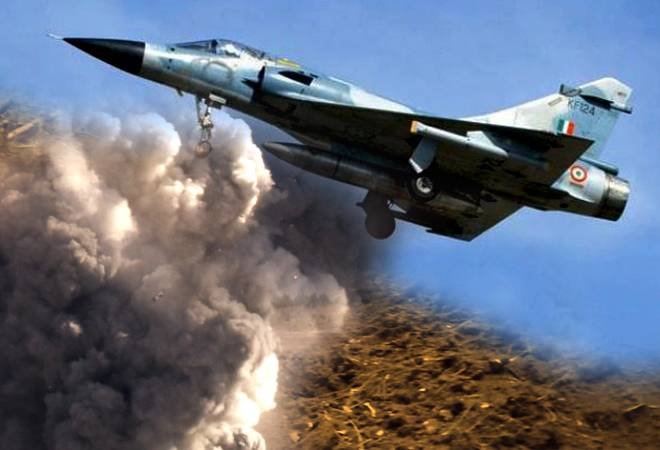India-Pakistan Tensions: Questions on the table

Against the backdrop of post-Pulwama India-Pakistan tensions, Sanjay Badri-Maharaj answers the important questions which cover aspects from the possibilities of a full-fledged war and India’s counterterrorism strategy.
After the Preemptive strike by IAF on Pakistan-based terror camps and further response, by Pakistani side, there was huge public pressure on the Indian Government to retaliate at a larger scale. Do you think this
I think it is very dangerous to suggest that the airstrikes were
solely because of public pressure on the PM. There was huge pressure on PM Singh in 2008 after the Mumbai attacks which killed many more people and which warranted a response. Yet he chose to do nothing.A full-fledged war is very unlikely. Had one of the IAF Mirages conducting the strike been shot down, it would have been catastrophic.
More than any damage caused or casualties, the fact that the operation – ingress and egress into Pakistan unscathed – was done at all was a remarkable achievement.
Pakistan responded to the Indian air strike on Balakot partly because of damage or casualties – which undoubtedly did occur -, but because India was able to strike deep into Pakistan without being touched by the PAF.Pakistan was then obliged to duplicate it in its retaliatory air strike on Indian military installations.
In this encounter, 24 Pakistani Air Force fighters were confronted by 8 IAF fighters and failed to reach their targets.
In other
words their retaliation was a failure.However, when pursuing a PAF F-16 over the LoC, India lost a MiG-21Bison – which is fair under the rules of engagement.
Possibly a PAF F-16 was lost but we need to treat this as unconfirmed.
As to the issue of a full-fledged war, this was unlikely. However, Pakistan, by moving to attack an Indian military target may have provided provocation.
Public perception plays a part. India has been attacked by Pakistan’s terrorist proxies innumerable times and has been very meek in its reaction. After the Uri raids of 2016, there was an expectation that retaliation would come.
In this sense, India has rewritten the rules – Pakistan and its proxy terrorists cannot assume India will not cross deep into Pakistan to retaliate.
2. According to a report by Times of Islamabad, they claim India & Israel was jointly planning for an attack at 8 locations of Pakistan, including Pakistan’s nuclear assets. How true this could be in your opinion?
I am inclined to treat this as absolute nonsense. Pakistan sees a “Hindu-Jewish” conspiracy at every turn and see these plots at every turn. It is pathetic.
3. Pakistan Air Force Chief warned of more encounters with IAF in coming days. What’s your take on this?
There is a strong likelihood of confrontation and encounters. However, there are agreements – the 1989 bilateral agreement on confidence-building measures between India and Pakistan – has protocols to be followed. This is why there was no exchange of beyond-visual-range missiles between the IAF and PAF. Only when the MiG-21 crossed the LoC was it shot down. Encounters will occur. Aggressive patrolling and probes will be conducted.
We have seen today, for example, the
shoot -down of a Pakistani UAV but also a near panic and quasi-paralysis of an aspect of daily Pakistani life. The panic over an alleged raid at Fort Abbas which turned out to be false.Both air forces are very alert. This, if protocols are followed should not lead to a problem.
4. Asia has 4 nuclear neighbours and if we count Iran then 5. What does this mean to the world? Why are so many nuclear powers rising in Asia? Should the world worry?
Iran cannot be considered a nuclear weapons state as yet. Asia is a place where there is a confluence of threat perception, border tension and scientific expertise without the luxury of nuclear umbrellas provided by the United States. As such, you naturally have this growth in nuclear weapons states. Worry? The Pakistan-North Korea-China nexus and the North-Korea-Iran nexus are very worrying. This is due to the complete lack of responsibility in the controls regarding the export of weapons of mass destruction in these states and the partnerships which exist.
5. Are airstrikes going to reduce or increase terrorism in around Kashmir valley?
They will have no effect – what they have done is send a message to Pakistan that if a rubicon is crossed with a mass casualty event, Pakistan will be held responsible and punished.
Terrorism in Kashmir will still be funded and supported by Pakistan and gullible youth, indoctrinated in hate will provide willing recruits. That said, much will also depend on a combination of internal Indian measures to contain and lure youth away from terrorism and moving towards full political and economic integration of the State
6. By crossing the international boundary, did India set new rules in the conflict between two? What kind of future Indo-Pak conflicts look like after this?
Conventional conflicts can always take place. India has changed the rules and has now demonstrated the ability to inflict a degree of punishment on Pakistan without crossing the Rubicon into either conventional or nuclear war.
7. With Indian side claiming that they have shot F-16 by 3 Gen fighter aircraft Mig-21. Will this have any effect on Lockheed Martin’s efforts to push F-21(same as F-16) to Indian Air Force?
No. The F-21 offer has its industrial attractions and the aircraft is extremely capable.
8. Will IAF Rafale fighter jets give it air superiority over PAF?
It will offer a level of capability that is unmatched by the PAF. However, the quantity is limited and further orders are needed.



















